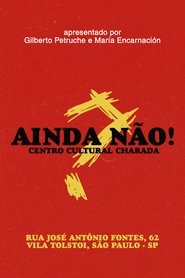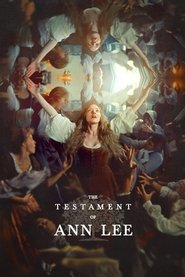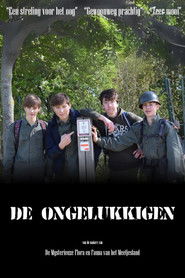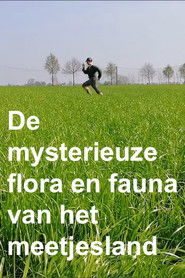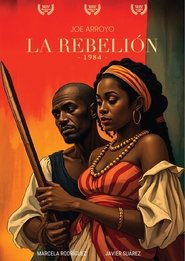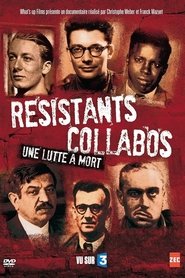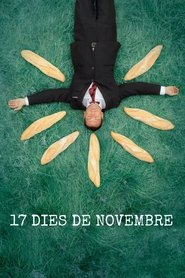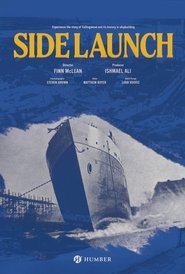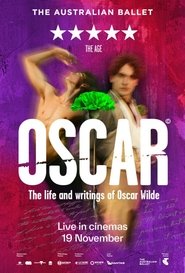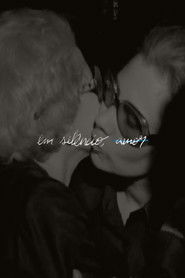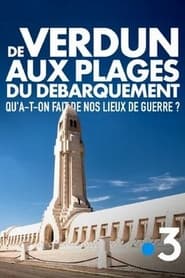Top Rated History Movies - Page 418
-
Hear Alexander the Great's Legendary Speech in Ancient Greek!
0000
star 10The Mutiny of Opis is a speech that Alexander the Great gave to his generals, furious, because they wanted to return home after years of wars. -
The Testament of Ann Lee
2025
star 6The extraordinary true legend of Ann Lee, founder of the devotional sect known as the Shakers. -
The Unfortunate
2019
The Unfortunate
2019
star 10A close-knit group of friends leaves for the military full of ideals and dreams. They leave everything behind: love, family and their carefree youth. But when the reality of war overtakes them, they are confronted with the raw and relentless truth. When the violence takes its toll, they face a struggle that goes beyond the battlefield. The loss of home, the traumas that haunt them, and the question of whether they will ever find themselves again drive them to extremes. -
The mysterious flora and fauna of the Meetjesland
2018
star 10A super cool nature documentary about the rugged nature of the Meetjesland. -
Cine Dunas
2024
-
17 dies de novembre
2024
-
Azerbaijani Atabegs
2024
Azerbaijani Atabegs
2024
star 9.5The film highlights the lives and deeds of Azerbaijani atabegs Shams ad-Din Eldeniz and Kara Sungur, who played a key role in strengthening the state in the 12th century. Shams ad-Din Eldeniz, the first great atabeg of Azerbaijan, leads successful campaigns, reclaiming territories and uniting the country under his rule. Kara Sungur, the ruler of Aran, engages in political intrigues and military campaigns to protect his lands and influence the sultanate. The film depicts their struggle for power, military achievements, and complex relations with allies and enemies. -
The Magic Mountain: Thomas Mann's Emblematic Novel
2024
star 5.5An analysis of The Magic Mountain, a novel by the German writer Thomas Mann (1875-1955), published in November 1924. -
Side Launch
2023
Side Launch
2023
star 10Collingwood is home to a bustling tourist industry, but it wasn't always this way. In Side Launch, you'll experience the town's history in shipbuilding and the passion of its beloved workers. -
Oscar
2024
Oscar
2024
star 10Oscar©, a powerful exploration of the life and writings of literary legend, Oscar Wilde. A spectacular new full-length ballet by Tony Award-winning choreographer Christopher Wheeldon In a celebration of the beauty and complexity of love in all its forms, Oscar© brings queer romance to life through Wheeldon’s innovative and heart-stirring choreography. Oscar© journeys through the extraordinary life of Wilde – a man who dared to live and write with unapologetic boldness – while masterfully integrating two of Wilde’s best-known works, The Nightingale and the Rose and The Picture of Dorian Gray. -
The Emptiness of the Universe - Immersing Deep Space
2024
star 10The vast emptiness of the Universe hides countless unsolved mysteries and riddles. In the deepest darkness of outer space, there lurk many striking objects with unusual and sometimes even anomalous properties. Despite all the research, we have learnt only a very small part of the incredible diversity of the Universe, and today we will take a plunge into its most mysterious depths. Our virtual journey will begin alongside the legendary Voyagers, which have been travelling through the expanses of space for decades now. After whizzing through the icy darkness of interstellar space, we will visit several of our nearest stars, including the amazing Alpha Centauri. And after that, we will dive into the uncharted depths of the Milky Way to find rogue planets hidden in the darkness. -
The Abused Children of Riaumont
2024
star 8For decades, pupils at the children's village of Riaumont, in northern France, run by Catholic monks and priests, were abused: until 2019, thousands of children suffered beatings, forced labor and sexual violence. -
em silêncio, amor
2024
 Netflix
Netflix
 Amazon Prime Video
Amazon Prime Video
 Apple iTunes
Apple iTunes
 Apple TV Plus
Apple TV Plus
 Disney Plus
Disney Plus
 Google Play Movies
Google Play Movies
 Paramount Plus
Paramount Plus
 Hulu
Hulu
 HBO Max
HBO Max
 YouTube
YouTube
 fuboTV
fuboTV
 Peacock
Peacock
 Peacock Premium
Peacock Premium
 Amazon Video
Amazon Video
 The Roku Channel
The Roku Channel
 AMC+
AMC+
 Kocowa
Kocowa
 Hoopla
Hoopla
 The CW
The CW
 Vudu
Vudu
 Starz
Starz
 Showtime
Showtime
 PBS
PBS
 Pantaflix
Pantaflix
 FXNow
FXNow
 Tubi TV
Tubi TV
 Kanopy
Kanopy
 Comedy Central
Comedy Central
 Crunchyroll
Crunchyroll
 Microsoft Store
Microsoft Store
 Redbox
Redbox
 Sun Nxt
Sun Nxt
 ABC
ABC
 DIRECTV
DIRECTV
 Crackle
Crackle
 Fandor
Fandor
 Plex
Plex

